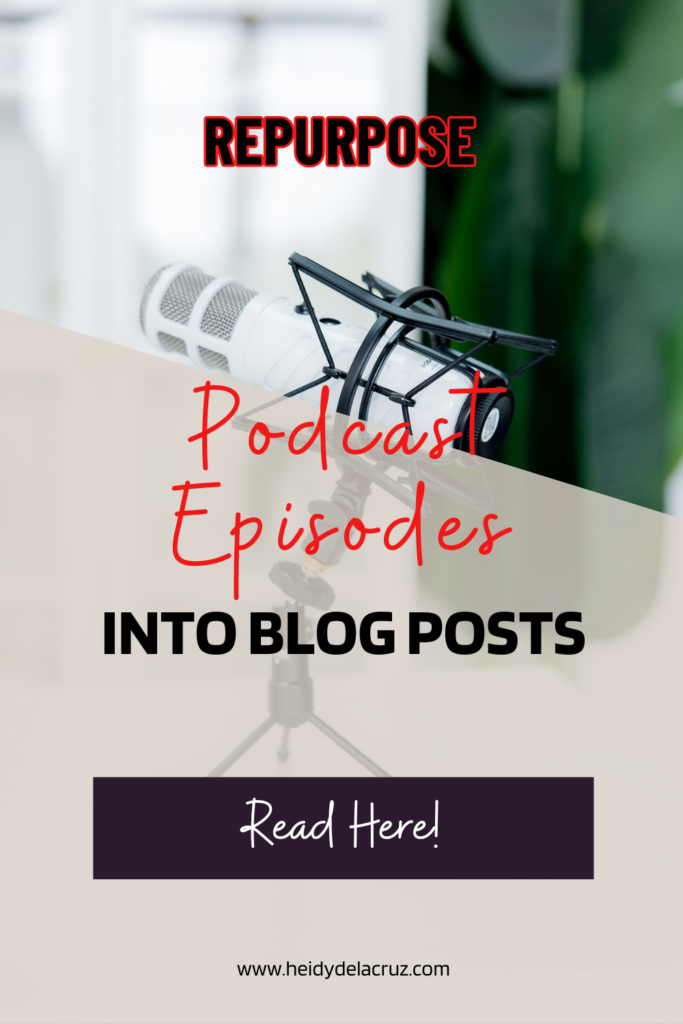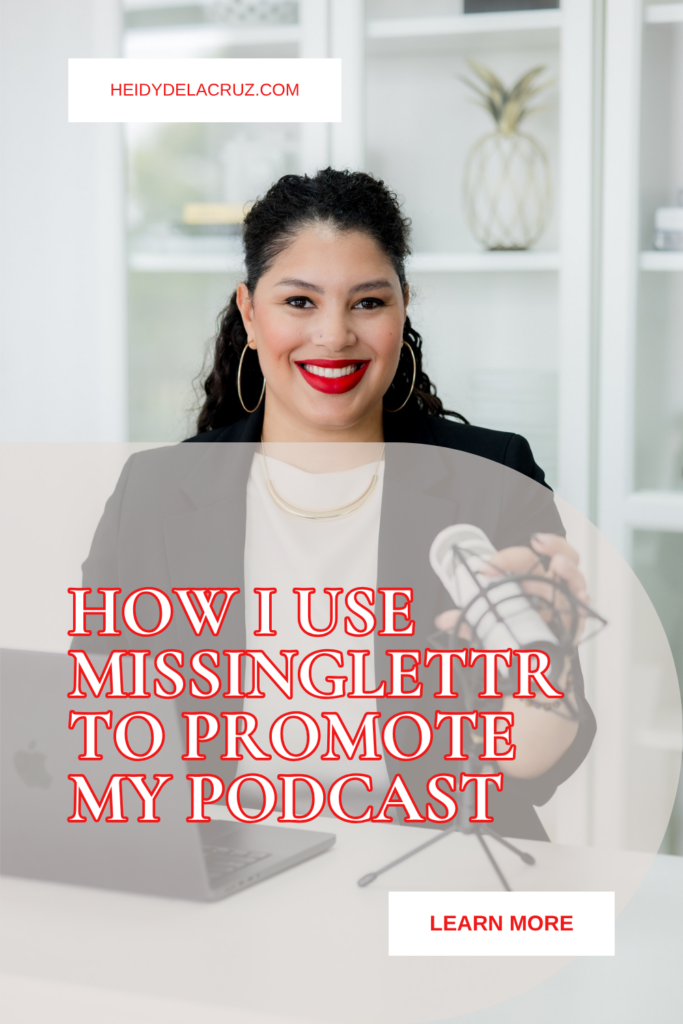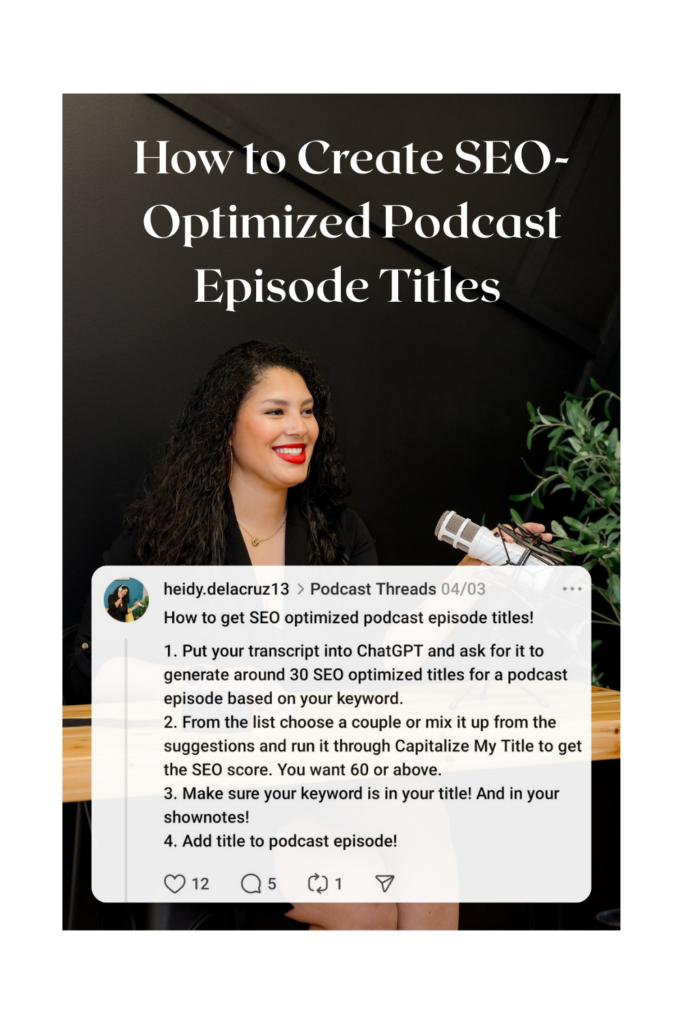From Vietnam War Refugee to Storytelling Leadership with Sandy Dang

Sandy Dang shares her story of fleeing war-torn Vietnam and living in refugee camps, building a successful nonprofit, and being appointed by President Obama. Her journey is a testament to resilience and the power of the human spirit. One thing that stood out was how she used her experiences to help other refugees and at-risk…
Repurpose Podcast Episodes Into Blog Posts

One of the things I wish I had done when I started my podcast is repurpose each episode into a blog post. However, in the first year of podcasting, my focus was on finding guests to maintain consistency in publishing content and getting the hang of producing a podcast. It wasn’t until about a year…
Carlos Quezada’s Journey to Silicon Valley Success
Carlos is a successful figure in Silicon Valley. In his episode, he shares insights from his book, “The Immigrant Survivor Guide to Silicon Valley,” and recounts his experiences growing up between Mexico and the U.S., ultimately shaping his career path. Carlos comes from a small farming community in Jalisco, Mexico, and currently resides in San…
How I Use Missinglettr to Promote My Podcast

Many times, people launch their podcasts as an extension of their online business. And just like their business, the podcasts needs promotion so listeners can find the show. However, many also launch their podcasts as an alternative way to promote their services and products without relying on social media. So, how can you promote your…
Growing Up Korean-American and Moving Back to Korea with Rée

Rée’s Story Growing Up Korean-American Rée describes herself as an interdisciplinary storyteller and educator. Her creative journey started early. With a background in art and film, she’s worked as a photographer, filmmaker, and graphic designer. Rée says her creative pursuits come naturally to her. Her brain works like a camera, constantly capturing images and patterns….
How to Create SEO-Optimized Podcast Episode Titles

Your podcast episode could be full of gold—amazing stories, valuable insights, or laugh-out-loud moments—but if no one clicks on it, all that magic gets buried. That’s why your episode title is so important. It needs to be clear, clickable, and search-friendly. Big emphasis on the search-friendly. If you struggle with writing compelling, SEO-optimized titles, you’re…
The Story Behind the Mic: Why I Started a Podcast on Immigration

In a special twist for this episode of The American Dream in the Eyes of Immigrants, the host becomes the guest. I had the pleasure of being interviewed by my friend Rée, and in this heartfelt conversation, I shared what inspired me to launch this podcast and why immigration stories hold a special place in…
5 Reasons to be a Guest on Podcasts as a Marketing Strategy

In a world saturated with social media noise, email overload, and ever-changing algorithms, podcasting stands out as one of the most effective and underutilized marketing strategies available today. While hosting your own podcast has its advantages, becoming a guest on other people’s shows can be equally—if not more—impactful. Whether you’re a business owner, creative entrepreneur,…
Who is Criya’s Founder? Deb Dutta

Deb shares her inspiring journey from India. A journey driven by her pursuit of better opportunities in computer science, leading her to study at Carnegie Mellon University. She discusses her career journey. Including her internship at Microsoft, employment at PayPal, and her entrepreneurial leap. She founded a tech startup, Criya, specializing in AI-driven visual content…
Culture Shock: The Unexpected Challenge of the Immigrant Journey

When people think about immigration, they often focus on the logistics, such as paperwork, visas, plane tickets, and finding a new home. But one of the most emotional, unspoken challenges many immigrants face is something far more personal and disorienting: culture shock. As the host of The American Dream in The Eyes of Immigrants Podcast,…

